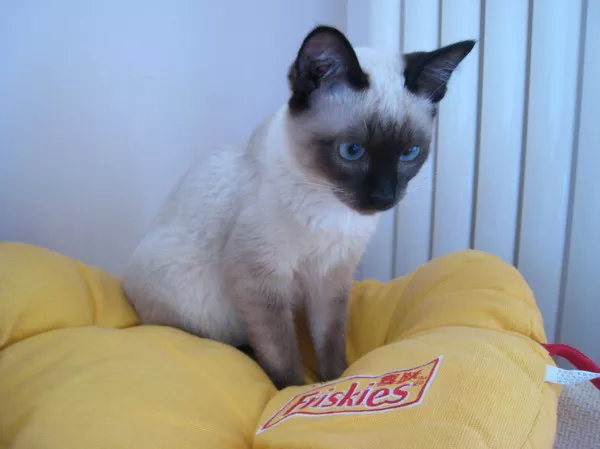Cats have been captivating humans with their mysterious and independent nature for thousands of years. While dogs are often praised for their ability to respond to their names, many cat owners have wondered if their feline companions possess a similar recognition. In this article, we delve into the intriguing question of whether cats know their names, exploring the science behind feline communication and the factors that influence a cat’s response to their name.
The Complexity of Feline Communication
To understand whether cats know their names, it’s essential to grasp the intricacies of feline communication. Cats are known for their nonverbal cues, body language, and vocalizations, which can vary significantly from one individual to another. Some common cat vocalizations include meowing, purring, hissing, and growling, each serving different purposes.
Cat Vocalizations and Their Meanings
Meowing: Meowing is the most familiar vocalization to humans. Cats primarily meow to communicate with their human companions, rather than with each other. The tone and frequency of meows can convey various messages, such as hunger, affection, or the desire for attention.
Purring: Cats often purr when content or relaxed, but they may also purr when in pain or distress. The context and accompanying body language help interpret the meaning behind the purring.
Hissing and Growling: Hissing and growling are defensive or aggressive vocalizations. Cats use these sounds to ward off perceived threats or during conflicts with other cats.
Chirping and Chattering: Some cats produce chirping or chattering sounds when observing birds or other small prey animals. This behavior is thought to mimic the vocalizations of potential prey.
Silent Meowing: Cats may also engage in “silent meowing,” where they open and close their mouths without making a sound. This is often seen when a cat is observing birds or other prey through a window.
The Name Recognition Debate
While cats have a wide range of vocalizations, the question of whether they can recognize their names remains a subject of debate among scientists and cat owners. Several factors influence a cat’s ability to recognize and respond to their name:
Socialization: Cats that are well-socialized from a young age tend to be more responsive to human interaction, including recognizing their names. Cats raised in homes with consistent human contact may be more likely to learn and respond to their names.
Individual Personality: Like humans, cats have distinct personalities. Some cats are naturally more curious, sociable, or attentive to their owners, making them more likely to respond to their names.
Repetition and Association: Cats are skilled at making associations. If you consistently use their name in a positive context, such as offering treats or affection, they may learn to associate their name with pleasant experiences.
Tone and Inflection: Cats are sensitive to the tone and inflection of human speech. They may respond more readily to a melodic or higher-pitched tone, as it can convey affection and attention.
Visual and Physical Cues: Cats are observant animals and may respond to visual and physical cues along with their names. For example, they may recognize the sound of a treat bag or the sight of a food dish being prepared.
Research on Cat Name Recognition
Scientific research on cat name recognition is limited compared to studies on dogs’ ability to respond to their names. However, some studies have explored this intriguing aspect of feline behavior.
A study published in the journal “Scientific Reports” in 2019 suggested that domestic cats can indeed distinguish their names from other words and vocalizations. The research involved observing the responses of cats in various settings, including homes, cat cafes, and a cat shelter. The results indicated that most cats displayed a greater response, such as moving their ears or heads, when their names were spoken, compared to other words or names.
Another study published in the journal “Animal Cognition” in 2013 found that cats can learn to recognize their names through a process of associative learning. The study involved training cats to respond to their names using a consistent reward system. Over time, the cats learned to associate their names with positive outcomes, such as receiving food or playtime.
Interpreting a Cat’s Response
It’s essential to recognize that a cat’s response to their name may not always be as overt as a dog’s enthusiastic tail wagging or barking. Cats are known for their subtlety, and their responses may include the following:
Ear Movement: Cats may perk up their ears or rotate them toward the source of the sound.
Head Tilt: Some cats may tilt their heads slightly when they hear their name, showing curiosity or attentiveness.
Eye Contact: Making eye contact with their owner after hearing their name can be a sign of recognition.
Approach or Affection: Cats may approach their owner or show affection, such as purring or kneading, after hearing their name.
Vocalization: In some cases, cats may respond by meowing or making other vocalizations when their name is called.
Factors Affecting Response
Several factors can influence whether a cat responds to their name, including their mood, environment, and the presence of distractions. For example:
A cat that is relaxed and receptive to interaction is more likely to respond positively to their name.
In a noisy or busy environment with competing sounds or stimuli, a cat may not respond as readily.
Cats may be less responsive when they are engaged in play, hunting, or other activities that capture their attention.
Conclusion
While the question of whether cats know their names remains a subject of ongoing study and discussion, there is evidence to suggest that many cats can indeed recognize their names. However, their responses may vary depending on individual personality, socialization, and the associations they have formed with their names. As with any aspect of feline behavior, understanding and respecting your cat’s unique preferences and communication style is essential for building a strong and mutually enjoyable relationship. Whether or not your cat responds to their name vocally, their actions and body language can provide valuable cues about their feelings and desires, allowing for meaningful interaction and companionship.


























